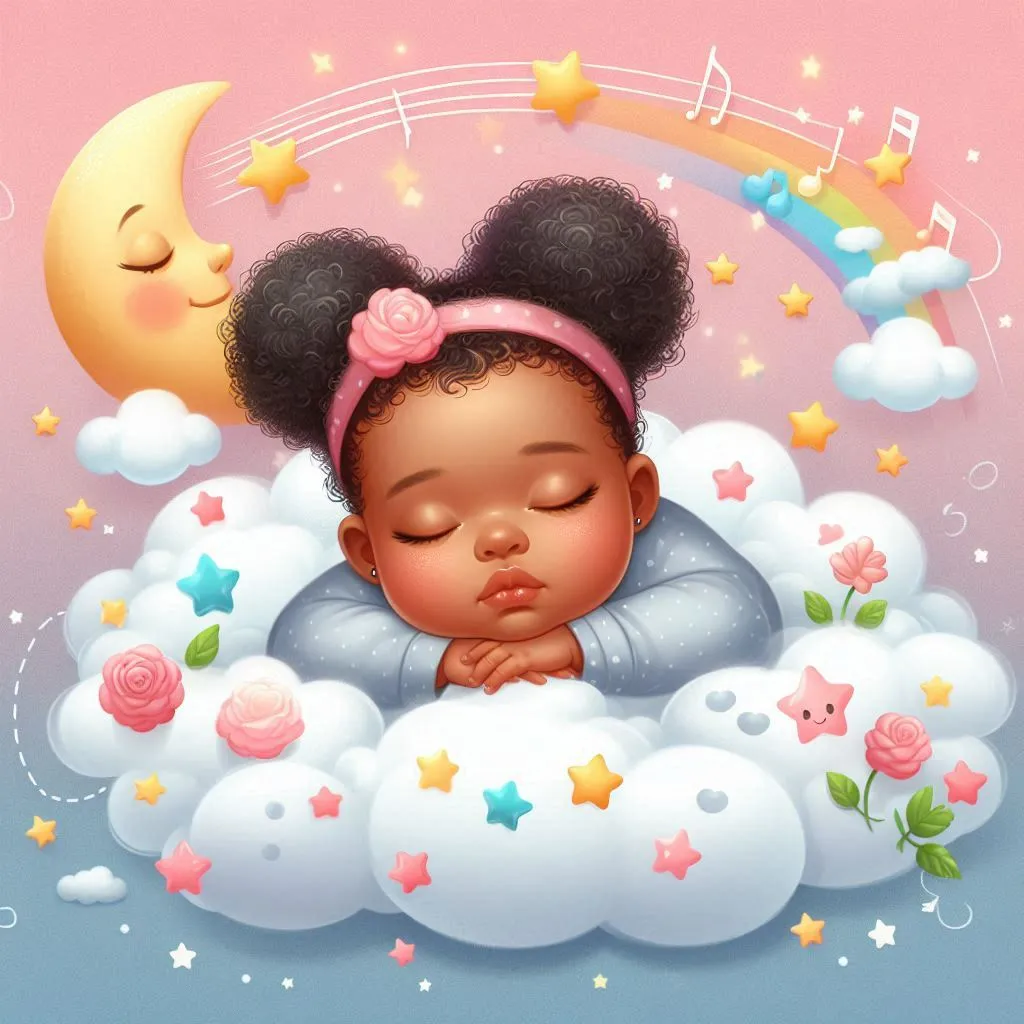Meanings of Dream About Your Child Being a Baby Again
You’re not alone if you’ve caught yourself dreaming about your child being a baby again, their tiny hands and feet a distant memory. It’s a bittersweet sensation, one that’s both comforting and unsettling. What’s driving this nostalgia?
Is it a desire to relive the simplicity of those early days, or something more complex? Perhaps it’s your brain’s way of coping with the rapid pace of growth, or a longing for the innocence of childhood.
Whatever the reason, it’s clear that this dream taps into a deep emotional well, one that’s worth exploring further.
At a Glance
- Dreams about your child being a baby again stem from maternal instincts, nostalgia, and emotional regression, offering a temporary escape from parenting stresses.
- This phenomenon is a coping mechanism, allowing parents to relive a simpler time and recapture the sense of wonder and innocence of their child’s early years.
- The brain is wired to respond to the child’s needs, manifesting in dreams where the child is still a baby, as a way to process and adapt to their growth.
- These dreams symbolize a deep-seated desire to reconnect with the carefree nature of childhood, simplicity, and clarity, and to recapture the sense of accomplishment that came with every small milestone.
- Acknowledging and addressing the underlying emotions driving these dreams, such as nostalgia, grief, and anxiety, is crucial for finding closure and acceptance of the child’s growth.

Unpacking the Psychology Behind
When you dream about your child being a baby, it’s natural to wonder what’s driving this nostalgic vision.
One possible explanation lies in your maternal instincts. As a parent, you’ve invested immense emotional energy into nurturing your child, and those feelings don’t simply disappear as they grow older.
Your brain is wired to respond to your child’s needs, and this instinctual response can manifest in dreams where your child is still a baby.
This phenomenon can also be attributed to emotional regression, a psychological process where you temporarily revert to a previous emotional state.
In this case, your dream may be a manifestation of a desire to relive a simpler, more carefree time when your child was entirely dependent on you.
This emotional regression can be a coping mechanism, allowing you to momentarily escape the stresses and challenges of parenting an older child.
Nostalgia and Its Effects
Dreaming about your child as a baby often awakens a deep sense of nostalgia, leaving you with a bittersweet longing for the past.
This nostalgia can be intense, making you wish you could turn back time and relive those precious moments. You’re not alone in feeling this way; many parents experience nostalgia when they think about their child’s early years.
Nostalgia has several effects on you as a parent:
- It provides emotional comfort, allowing you to revisit happy memories and feel a sense of warmth and security.
- It helps you cope with the challenges of parenting, serving as a reminder that the struggles are worth it.
- It can create social pressure, making you feel like you’re not doing enough or that you’re not measuring up to other parents.
- It influences your parenting style, causing you to hold on to traditions and values from your child’s early years.

Parental Longing and Grief
As you reflect on your child’s baby years, a tender ache can settle in, leaving you yearning for the simplicity and innocence of that time.
This longing is a natural response to the passage of time, and it’s common to feel a sense of grief as your child grows up. You may find yourself wondering where the time went, and why you didn’t cherish those early years more.
Parental guilt can creep in, making you question every decision you made during that period.
You’re not alone in this feeling.
Many parents experience maternal anxiety as they navigate the challenges of raising a child.
The pressure to be perfect, to make the right choices, and to provide the best possible life for your child can be overwhelming.
As you look back, you may regret not being more present, not enjoying the little moments, and not appreciating the beauty of childhood.
Acknowledge these feelings, and remind yourself that you did the best you could with the resources you had.
The grief you’re experiencing is a sign that you’re a caring, invested parent, and that’s something to be proud of.
The Symbolism of Childhood
Your dreams about your child being a baby often symbolize a deep-seated desire to recapture the innocence, purity, and simplicity of childhood.
This longing is rooted in a nostalgia for a time when life was uncomplicated and carefree. You’re not yearning to relive the sleepless nights or endless diaper changes, but rather to reconnect with the sense of wonder, curiosity, and playfulness that defined childhood.
Childhood represents a period of life when you were more carefree, spontaneous, and open to new experiences.
Your dreams may be urging you to tap into this sense of freedom and joy. Consider the following aspects of childhood that your dreams may be drawing upon:
- A desire for childhood innocence, untainted by the complexities and cynicism of adulthood
- A longing for inner peace, unencumbered by the burdens of responsibility and stress
- A need to reconnect with your own sense of curiosity and playfulness
- A wish to recapture the simplicity and clarity of childhood, uncluttered by the nuances of adult life
Your Subconscious at Work
Through the lens of your subconscious, your dreams about your child being a baby reveal a deeper psychological landscape.
It’s as if your mind is playing a game of hide-and-seek, concealing your true emotions and desires beneath the surface. Your subconscious fears and anxieties, often hidden from your waking self, emerge in these dreams, begging for attention and understanding.
Your mind is clever, using your child’s babyhood as a metaphor for the aspects of yourself that feel vulnerable, innocent, or in need of nurturing.
Perhaps you’re struggling to let go of control or feeling overwhelmed by the demands of parenthood. Maybe you’re yearning for a sense of simplicity or freedom from responsibility. Whatever the reason, your subconscious is using these dreams to communicate with you, to alert you to the parts of yourself that need acknowledgment and care.
Memories of Late-Night Feedings
Memories of late-night feedings resurface in your dreams, transporting you back to a time when your child’s needs were more immediate and demanding.
As you drift off to sleep, your subconscious whispers reminders of those tender moments, when the world seemed to slow down, and it was just you and your baby, lost in a sea of Baby Bliss.
In these Midnight Moments, you felt needed, wanted, and loved.
Your baby’s tiny hands grasped your fingers, and their eyes locked onto yours, filling your heart with an overwhelming sense of purpose.
You recall:
- The soft glow of the nursery lamp, casting a warm ambiance over the late-night feeding sessions
- The gentle hum of the white noise machine, blocking out the world and creating a sense of intimacy
- The feeling of your baby’s soft, downy hair against your cheek, as you cradled them in your arms
- The sweet, milky scent of their skin, a fragrance that still evokes feelings of warmth and comfort
Why We Miss Those Sleepless Nights
Nostalgia whispers secrets to our hearts, revealing the unconscious longing we harbor for those sleepless nights.
You thought you’d never survive the exhaustion, but now you find yourself yearning for the gentle touch of tiny hands, the soft coos, and the innocence of your child’s babyhood.
It’s not just the memories of late-night feedings that you miss, but the sense of purpose that came with them. Your maternal instinct was in overdrive, and you felt needed, essential, and invincible.
As you look back, you realize that those sleepless nights were a small price to pay for the joy your child brought into your life.
Paternal nostalgia washes over you, and you’re reminded of the countless moments you spent gazing lovingly at your little one, wondering what the future held.
Those late-night conversations, the whispered promises, and the silent vows to always be there for your child – they all come flooding back.
You miss the sleepless nights because they were a reminder that you were needed, that you were making a difference, and that your child’s life was forever entwined with yours.
Revisiting the Bonding Experience
Revisiting the Bonding Experience
Embracing the quiet moments with your child allowed you to tap into a deeper sense of connection, one that transcended the chaos of daily life.
It’s in these moments that your maternal instincts kicked in, and you felt an overwhelming sense of love and protection for your little one. As you gazed into their eyes, you knew that you’d do anything to keep them safe and happy.
Revisiting these bonding experiences can help you recapture the essence of those early days.
Consider the following:
- The way your child’s tiny hands grasped your finger, trusting you completely
- The soft, gentle coos that filled the air as you rocked them to sleep
- The way you’d whisper sweet nothings in their ear, promising a lifetime of love and protection
- The countless hours spent watching them sleep, mesmerized by the gentle rise and fall of their chest
Parental amnesia can make it easy to forget the little things, but revisiting these moments can help you reconnect with your child on a deeper level.
The Fear of Losing Innocence
As you cherish the tender moments of your child’s infancy, a subtle anxiety begins to creep in – the fear of losing innocence.
You can’t help but wonder when your little one will outgrow their carefree nature and start facing the harsh realities of the world. This innocence anxiety can be overwhelming, making you question your ability to protect and guide them through the challenges that lie ahead.
The uncertainty of childhood can be intimidating, and it’s natural to feel apprehensive about the day your child’s innocence will be lost.
You might find yourself reflecting on your own childhood, recalling moments when your own innocence was lost.
Perhaps it was a traumatic event, a painful experience, or a harsh lesson learned. Whatever it was, it changed you, and now you worry that your child will go through something similar.
This fear can be paralyzing, but crucial to acknowledge and address it. By doing so, you’ll be better equipped to support your child as they navigate the complexities of growing up, and help them maintain their innocence for as long as possible.
A Desire for Simpler Times
You find yourself yearning for the simplicity of your child’s early days, when life was uncomplicated and their biggest worries were naptime and feeding schedules.
It’s natural to crave a return to those carefree times, where the only decisions you made were what to feed them for lunch and when to schedule their next nap.
This nostalgia often stems from a deeper desire for a more peaceful existence.
You’re not alone in wanting to relive the simpler joys of parenthood.
Here are a few reasons why you might be yearning for those early days:
- The absence of tantrums and meltdowns, replaced by coos and giggles
- The simplicity of their needs, easily met with a diaper change or a feed
- The quiet moments spent gazing into their eyes, feeling a deep sense of connection
- The sense of accomplishment that came with every small milestone achieved
Coping With Growing Pains
Your mind wanders back to those early days, but the reality is that your child is growing up, and with that comes a new set of challenges.
As your child asserts their growing independence, you’re faced with the task of adapting to these changes. This process can be painful, but it’s a vital step in your parental evolution.
It’s vital to acknowledge that your role isn’t diminishing, but rather, it’s evolving to meet your child’s changing needs.
You’re no longer the primary caregiver, and this shift can be difficult to accept.
However, this new phase brings opportunities for growth, exploration, and connection on a deeper level.
Embrace the chance to re-establish your relationship with your child, focusing on guidance, support, and mentorship.
By doing so, you’ll create space for open communication, trust, and mutual respect.
Finding Closure and Acceptance
Nostalgia’s bittersweet pang can linger, making it difficult to fully let go of the past.
As you navigate the journey of watching your child grow up, finding resolution is vital to discover closure and acceptance. This process doesn’t mean erasing memories or pretending they never happened; rather, it’s about acknowledging the impermanence of each stage and embracing the present.
To facilitate this process, consider the following closure mechanisms:
- Reflect on the lessons learned: Identify the skills and values you’ve acquired during each stage, and recognize how they’ve contributed to your growth as a parent.
- Create new traditions: Develop new rituals and customs that celebrate your child’s current phase, helping you focus on the present and future.
- Let go slowly: Acknowledge that closure is a gradual process, allowing yourself to process emotions and memories at your own pace.
- Practice self-compassion: Treat yourself with kindness and understanding, just as you’d a close friend, as you navigate the ups and downs of parenting.
FAQs
Can Recurring Dreams About My Child’s Infancy Affect Our Current Relationship?
As you reflect on recurring dreams about your child’s infancy, recognize that maternal nostalgia and emotional longing may be influencing your current relationship, potentially revealing unmet emotional needs or a desire for reconnection with your child.
Are These Dreams a Sign of Anxiety About My Child’s Future?
You wonder if these recurring dreams signal anxiety about your child’s future. It’s possible; parental nostalgia can trigger emotional regression, revealing underlying fears about your child’s growth and independence.
Do These Dreams Mean I’m Unhappy With My Child’s Current Age?
You wonder if your dreams are a reflection of discontent with your child’s current age, but they may actually stem from parental nostalgia, a natural yearning for simpler times, rather than dissatisfaction with their growth.
Can I Influence the Content of These Dreams Through Self-Reflection?
You can shape your subconscious narratives by setting mindful intentions, focusing on personal growth, and practicing self-awareness, allowing you to tap into your deepest desires and uncover the underlying messages your dreams are trying to convey.
Will These Dreams Stop Once My Child Reaches Adulthood?
As you wonder if these dreams will fade with time, know that child nostalgia and parental longing can linger, but their intensity will likely wane as your child grows, and you’ll find new ways to cherish memories, letting go of the past.

I’m Eliza Trinity, a spiritual guide and writer at SoulfulSignificance.com, where my mission is to illuminate the path of spiritual fulfillment through Christ’s teachings. With a Theology degree and a counseling background, I blend biblical wisdom with real-world insight to support those on their journey to discovering their soul’s significance.






